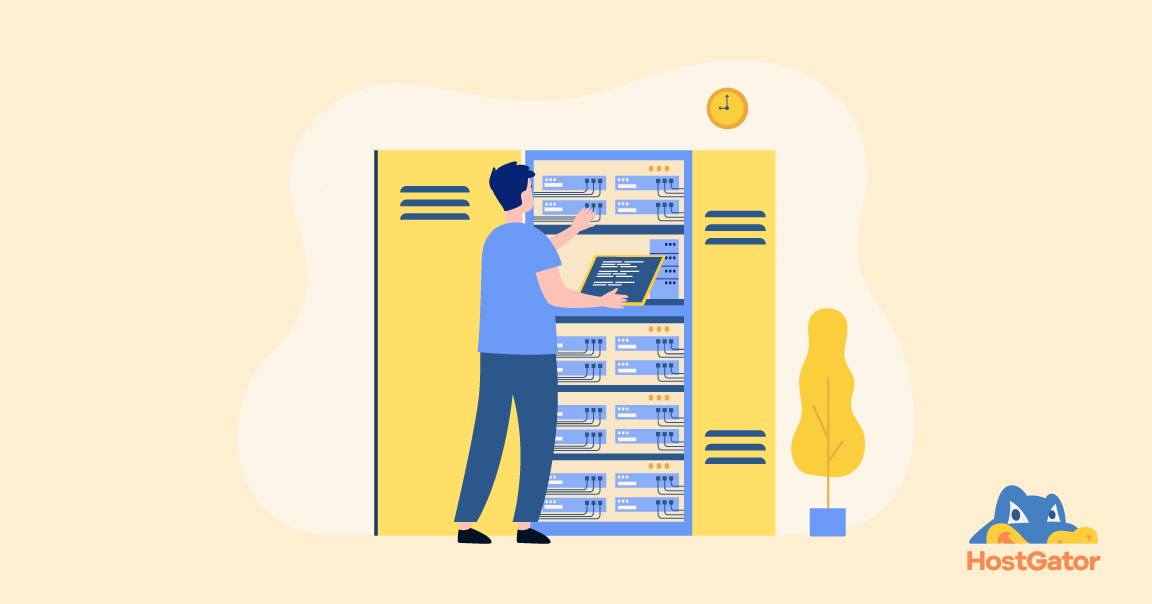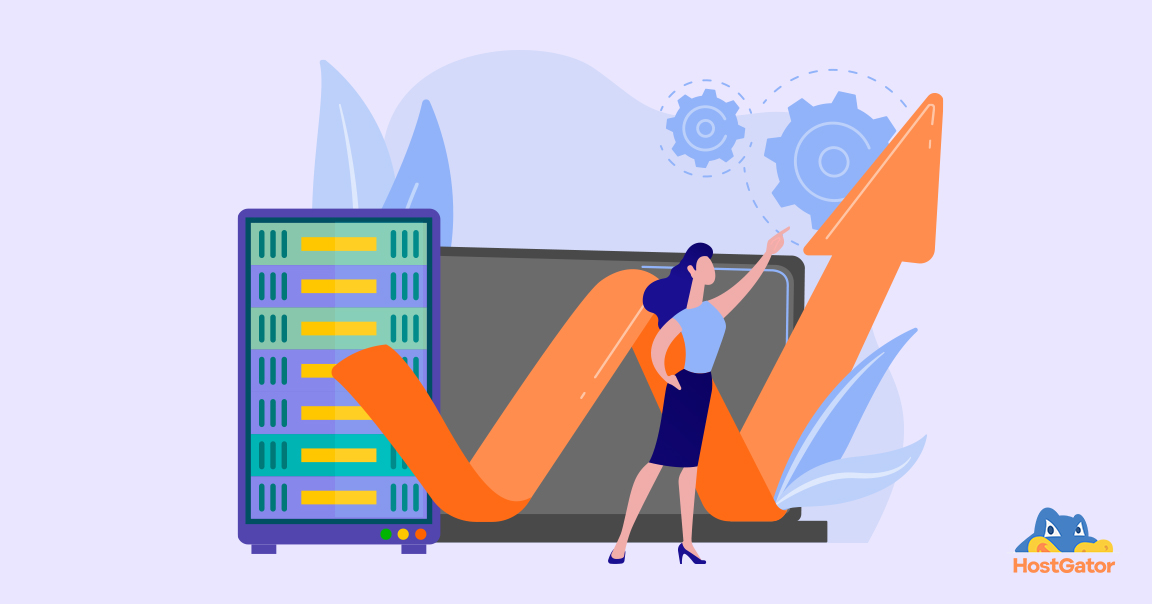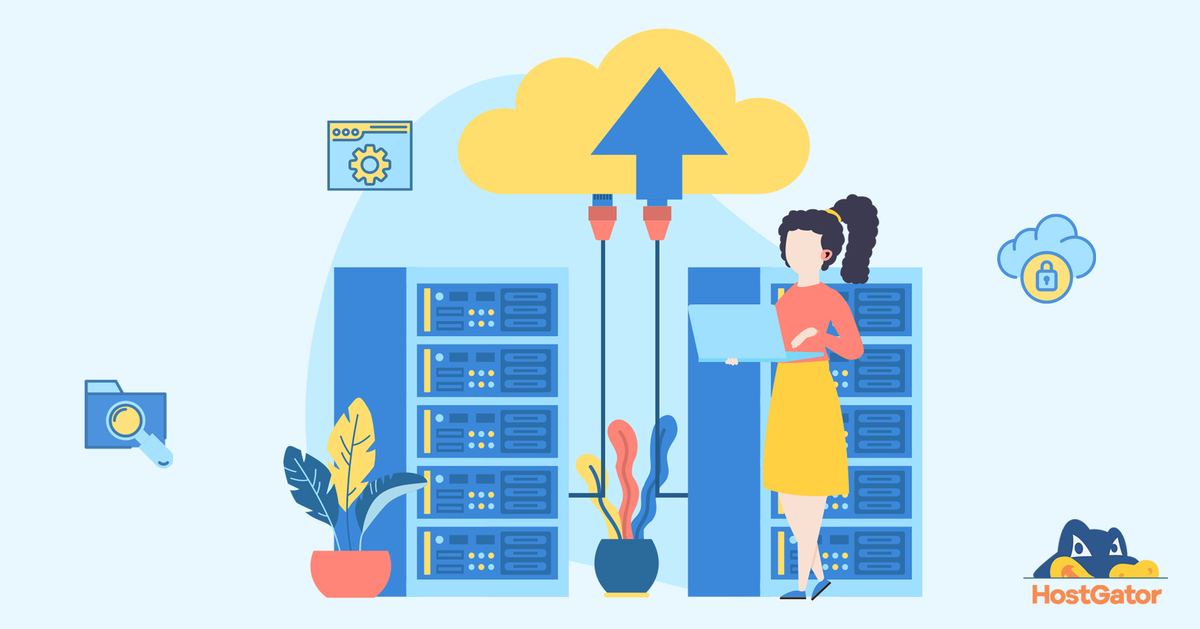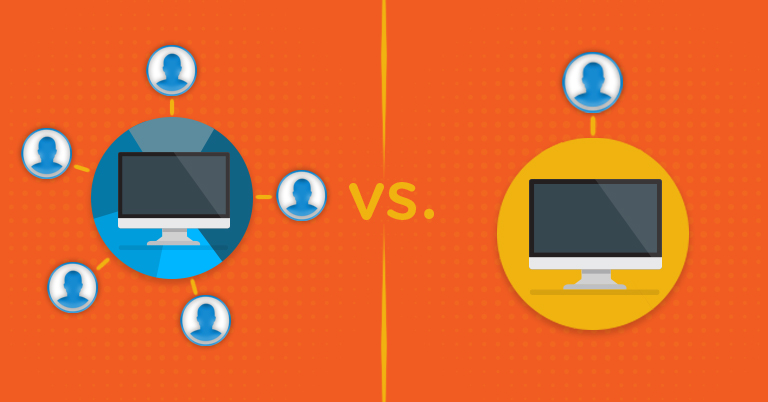The digital world can be a dangerous place, especially for businesses who rely on online services. Virtual Private Servers (VPS) have become a popular hosting solution, offering a balance of performance, customisation and affordability.
But if it’s not adequately protected, a VPS server might be vulnerable to cyberattacks, just like any other internet-connected device. This complete guide will walk you through some essential steps to create a secure VPS hosting environment and protect your digital assets.
Understanding VPS and Its Importance
A Virtual Private Server, or VPS, is like having your own mini-computer within a larger computer. It’s a virtual machine that provides dedicated server resources on one physical server shared with other users. Unlike shared hosting, where you’re sharing all resources with others, a VPS gives you your own space with guaranteed resources.
Here’s why people choose VPS hosting:
- Isolation: Each VPS operates independently, so if one website on the server has problems, it won’t affect yours.
- Dedicated Resources: You get your own slice of CPU, memory and storage, which no one else can use.
- Customisation: You can set up your VPS exactly how you want it, including custom security features.
Why VPS Security Matters
Securing your VPS is crucial for several reasons:
- Data Protection: Your VPS likely contains sensitive business and customer data. A security breach could lead to this information being stolen or deleted.
- Reputation Preservation: If your VPS is compromised, it can seriously damage your brand’s reputation and customer trust.
- Financial Impact: Cyberattacks can be expensive to fix because they can lead to legal problems and take a long time.
- Service Continuity: A secure VPS ensures your services stay up and running, avoiding downtime due to attacks.
Did you know that cyber-attacks happen every 39 seconds on average? In March 2023, over 300 million records were compromised worldwide due to cyberattacks. These statistics highlight the importance of taking VPS server security seriously.
Common VPS Vulnerabilities
Before we dive into security measures, let’s understand how a VPS server can be hacked:
- Website Vulnerabilities: Websites are accessible to all internet users and hackers may take advantage of vulnerabilities in web applications to access them without authorisation or change the data they contain. This can happen due to outdated software, poorly written code, or incorrect server settings.
- Server Access via SSH: SSH (Secure Shell) is a way to log into your server remotely. It gives you complete access to your server’s files and resources. Because of this, hackers use automated programs to constantly try to break into servers using SSH.
- Compromised Hosting Provider: Remember, your VPS is still running on a physical server somewhere. If a hacker can physically access that server, it becomes much harder to protect your data.
How to Secure a VPS Server (Blog 1, 2, 3)
Let’s explore how to secure your VPS server:
Choose a Reliable VPS Provider
Your journey to a secure VPS hosting starts with choosing the right provider. Look for companies that offer:
- DDoS Protection: This shields your server from attacks that try to overwhelm it with traffic.
- 24/7 technical Support: You want help available whenever you need it.
- Regular security Updates: Your provider should keep their systems up-to-date.
- Robust Network Infrastructure: A strong foundation is essential for security.
Implement Strong Authentication
Strong authentication is your first line of defence against unauthorised access:
- Use complex, unique passwords for all accounts. Combine digits, special characters and capital and lowercase letters.
- Enable two-factor authentication (2FA) wherever possible. This provides more protection than simply a password.
- Consider using SSH keys for server access instead of passwords. They withstand brute-force assaults and are safer.
- Disable root logins and create a separate admin account with sudo privileges.
Update and Patch Regularly
Keeping your system and software updated is essential for VPS server security:
- Set up automatic updates or create a schedule to apply security patches regularly.
- To fix security issues, update your OS and software.
- Remember, outdated software is one of the easiest ways for hackers to get into your system.
Configure Your Firewall
A properly set up firewall is a key component of VPS security:
- Use tools like iptables (for Linux) to create a strong first line of defence.
- Block unnecessary ports to reduce potential entry points for attackers.
- Allow only required incoming connections to minimise exposure.
- Set up rules to filter potentially malicious traffic.
Use Secure File Transfer Protocols
When moving files to and from your VPS, always prioritise security:
- Replace insecure protocols like FTP with more secure options such as SFTP or SCP.
- These protocols encrypt data as it moves, preventing others from intercepting and accessing your files.
Implement Least Privilege Access
Not everyone needs full access to your VPS. It is important to put the least privilege principle into practice:
- Create separate user accounts with limited permissions based on each user’s specific needs.
- Restrict access to sensitive directories and files.
- Regularly review and update user privileges, removing access when it’s no longer needed.
Enable SSL/TLS Encryption
Protecting data in transit is crucial for VPS security:
- Install SSL certificates on your web servers.
- Force HTTPS connections for all web traffic, redirecting HTTP requests to HTTPS.
- Keep your SSL implementation up-to-date, as older versions may have known vulnerabilities.
Monitor and Log Activity
Staying aware of what’s happening on your VPS is crucial for maintaining its security:
- Implement robust logging and monitoring practices.
- Regularly review server logs to detect any unusual or suspicious activities.
- Set up notifications for potential security breaches like numerous unsuccessful login attempts or unusual system file modifications.
Perform Regular Backups
Backups are your last line of defence in VPS server security:
- Set up automated, encrypted backups of your entire VPS, including all data, configurations and applications.
- Store these backups in a separate, secure location – preferably off-site or in a different cloud service.
- Regularly test your backup restoration process to ensure you can recover quickly if needed.
Use Third-Party Security Applications
There are many security applications available that can enhance your VPS security:
- Research and choose one or two good all-round security applications.
- Some applications excel at malware protection, while others are great at preventing DDoS attacks.
Close Unused Ports and Change Default Ports
Many cyberattacks are automated and target common configurations:
- Change default ports for services like SSH (usually port 22) to something else.
- Close all open ports that you’re not using. Each open port is a potential pathway for an attack.
Create an Access Hierarchy
With a VPS, you have complete control over your server. This can be both an advantage and a risk:
- Create multiple user profiles with different levels of access.
- Only give full access to those who absolutely need it, like your system administrator.
- Limit access for other users based on their specific needs.
Conclusion
Protecting your VPS is an ongoing process that needs constant attention and periodic maintenance. If you follow these VPS security tips, cybercriminals will have a much harder time getting into your VPS server. Remember, secure VPS hosting is about both avoiding breaches and preparing for the worst.
As HostGator, we offer secure VPS hosting with robust features like DDoS protection, 24/7 support, and regular security updates. Our reliable infrastructure and customisable options ensure your online presence stays protected.








